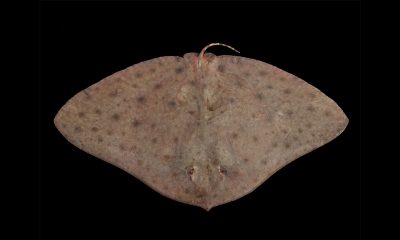Marine Life & Conservation
The Ocean’s Plastic Rubbish Is Mysteriously Disappearing
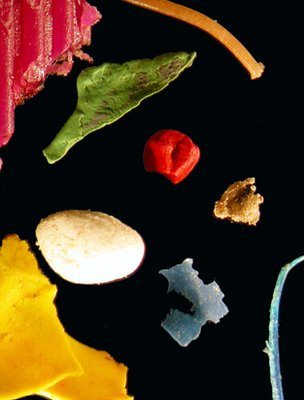
A new study suggests that a vast amount of the plastic littering the surface of the ocean may be disappearing.
Exactly what is happening to ocean debris is a mystery, though the researchers who conduted the study think that the trash could be breaking down into tiny, undetectable pieces. Alternatively, the rubbish may be sinking deep into the ocean’s interior.
“The deep ocean is a great unknown,” said study co-author Andrés Cózar, an ecologist at the University of Cadiz in Spain. “Sadly, the accumulation of plastic in the deep ocean would be modifying this mysterious ecosystem — the largest of the world — before we can know it.”
The researchers drew their conclusion about the disappearing rubbish by analysing the amount of plastic debris floating in the ocean, as well as global plastic production and the rate at which plastic is disposed.
Cózar and his colleagues wanted to understand the size and extent of the ocean’s rubbish problem. The researchers circumnavigated the globe in a ship called the Malaspina in 2010, collecting surface water samples and measuring plastic concentrations. The team also analyzed data from several other expeditions, looking at a total of 3,070 samples.
What they found was strange. Despite the drastic increase in plastic produced since the 1970s, the researchers estimated there were between 7,000 and 35,000 tons of plastic in the oceans. Based on crude calculations, there should have been millions of tons of garbage in the oceans.
Because each large piece of plastic can break down into many additional, smaller pieces of plastic, the researchers expected to find more tiny pieces of debris. But the vast majority of the small plastic pieces, measuring less than 0.2 inches (5 millimeters) in size, were missing.
So what exactly is happening to the debris?
One possibility is that it is being broken down into tiny, undetectable particles, whose impact on the ocean is unknown. Another possibility is that it is being carried into the deep ocean.
Whether that’s good or bad isn’t clear.
Less trash at the surface may mean less wildlife comes into contact with plastic.
“The plastic pollution in surface waters can more easily interact with the ocean life, because the surface layer of the ocean hosts most of the marine organisms,” Cózar said.
On the other hand, small fish may be eating some of these small plastic pieces, dubbed microplastics, and breaking them down even more. Because small fish are the ecological link between plankton and small vertebrates, and because commercial fish such as swordfish and tuna eat these small fish, it’s important to understand whether the absorption of toxins from the plastic will impact these animals’ health, he said.
The findings were published last month in the journal Proceedings of the National Academy of Sciences.
Source: www.livescience.com
Marine Life & Conservation
Shark Trust Launches New Podcast

 The Shark Trust has launched their new podcast. Delve behind the scenes and gain exclusive insights in the world of shark and ray conservation on The Shark Trust Podcast. Out Now!
The Shark Trust has launched their new podcast. Delve behind the scenes and gain exclusive insights in the world of shark and ray conservation on The Shark Trust Podcast. Out Now!
Join the Shark Trust on this journey as they explore the diverse world of sharks. Hear from experts from different backgrounds and learn how you can become a part of the global effort to protect these vital species.
Whether you’re a seasoned shark expert or just dipping your toes beneath the surface, this podcast offers something for everyone!
In the first series you will hear from the Shark Trust team. Shark Trust Patrons, Monty Halls, Miranda Krestovnikoff and Simon Rogerson. Divers with a passion for sharks. And some of the Oceanic 31 artists.
New episodes released every two weeks on all major podcast platforms and watch full video versions on the Shark Trust YouTube Channel. Keep your eyes peeled for the bonus minisodes!
There are two available to dive into right now!
Episode 1: Dive beneath the waves of shark and ray conservation with Mark as he speaks with Paul Cox, CEO of the Shark Trust. Paul and Mark discuss the threats and difficulties that sharks and rays currently face in the modern world. And how the Shark Trust is working to create a better future for them!
Bonus Minisode: Join Mark at Go Diving, the UK’s biggest dive show. He interviews Shark Trust Patron, Simon Rogerson, about his diving experiences and how seeing sharks can transform your life!
For more information about the work of the Shark Trust, visit their website here.
Marine Life & Conservation
Experience the Greatest Shoal on Earth followed by few nights with Sharks next month at some really great rates with Seas4Life (Watch Video)
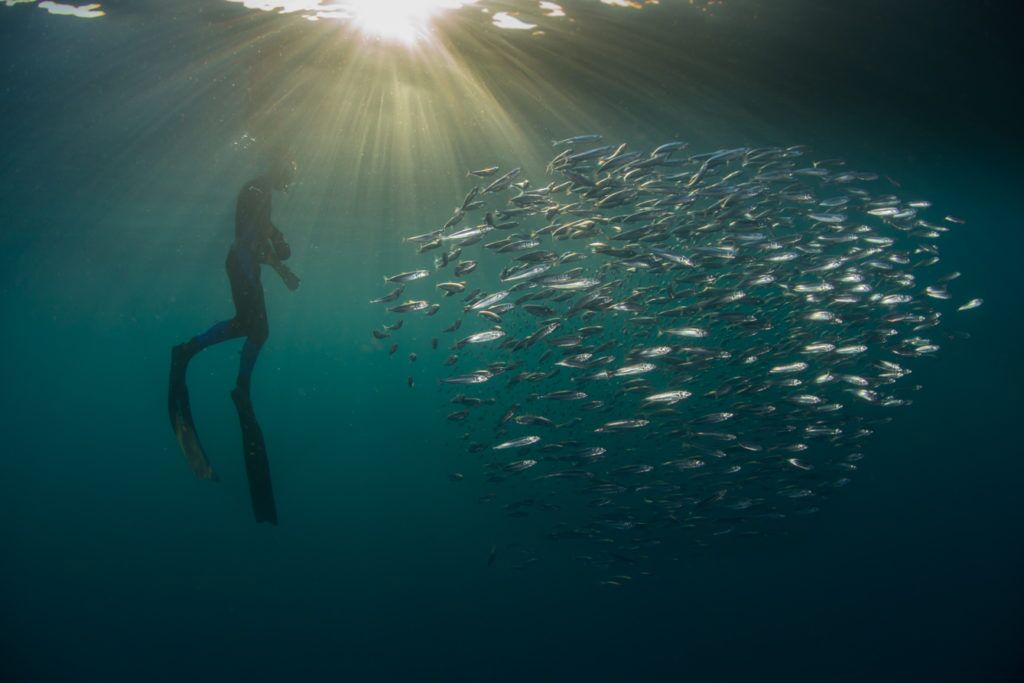
An Exclusive, Expert Led, One-Off experience…
For just a few short weeks each year – end of May through to end of June – the mighty Sardine Run showcases the epic efforts of supreme marine predators working in unison to feed off the migrating sardines in a most dynamic flurry of action. End of June early July is also when the shark season begins – just imagine it is a David Attenbourgh Blue Planet experience.
In case this natural wonder wasn’t exciting enough – majestic humpback whales just happen to start their annual migration back up north adding to this phenomenal experience.
Its a must for the adventurous soul.. Lots of love, laughter, and smiles.
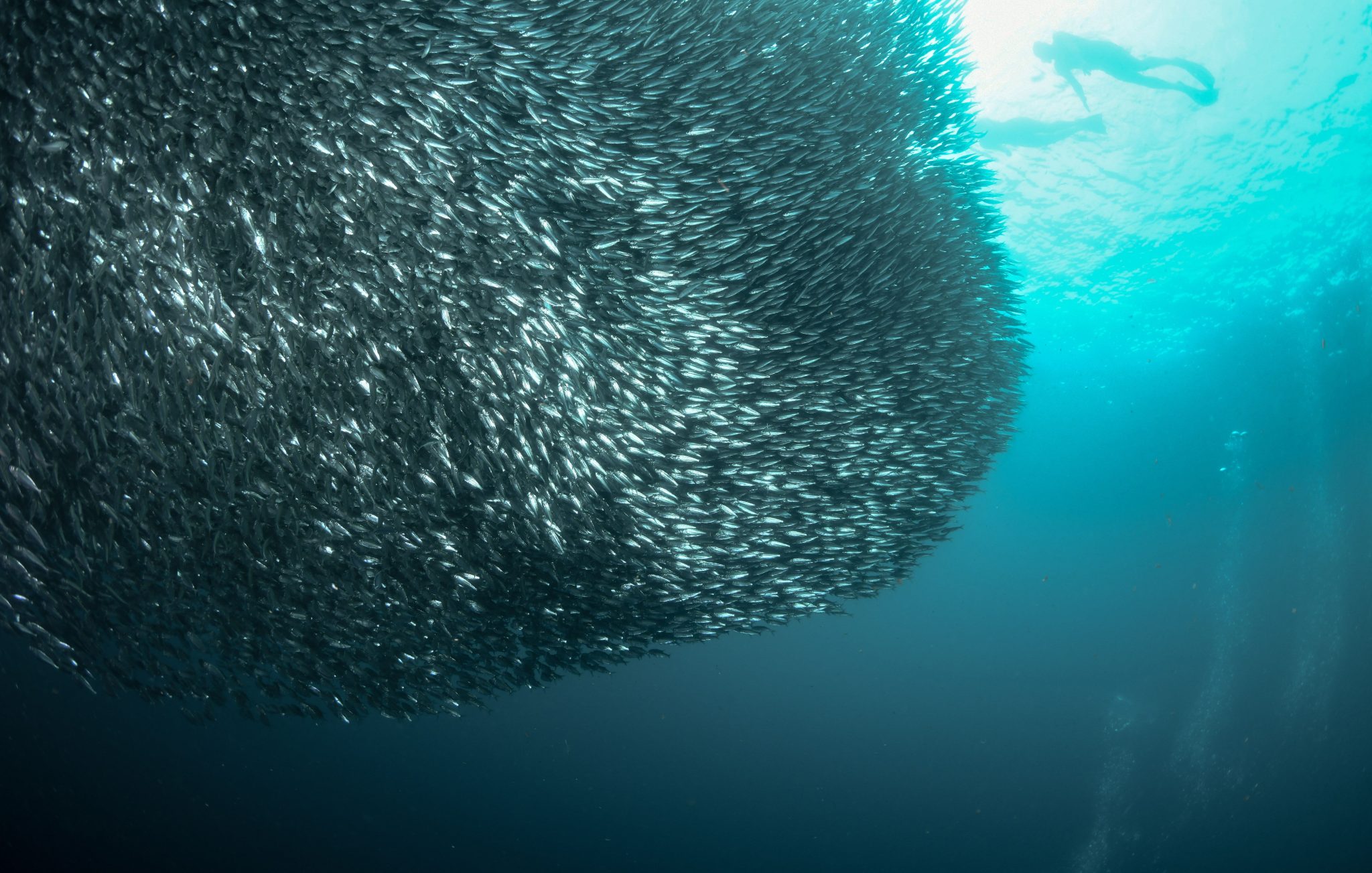
This is a feeding event of unmatched proportions. Thousands of common dolphin charge after the shoals, separating them into bait balls, with their ‘dolphin bubble technique’, bring them to the surface. Watched from the air by the cape gannets, who then launch a massive aerial assault on the sardines. They are also easy pickings for shivers of bronze whaler, dusky and black tip sharks, seals and lastly the huge mouths of Brydes (Brooders) whale that can consume an entire bait ball in one single lunge!
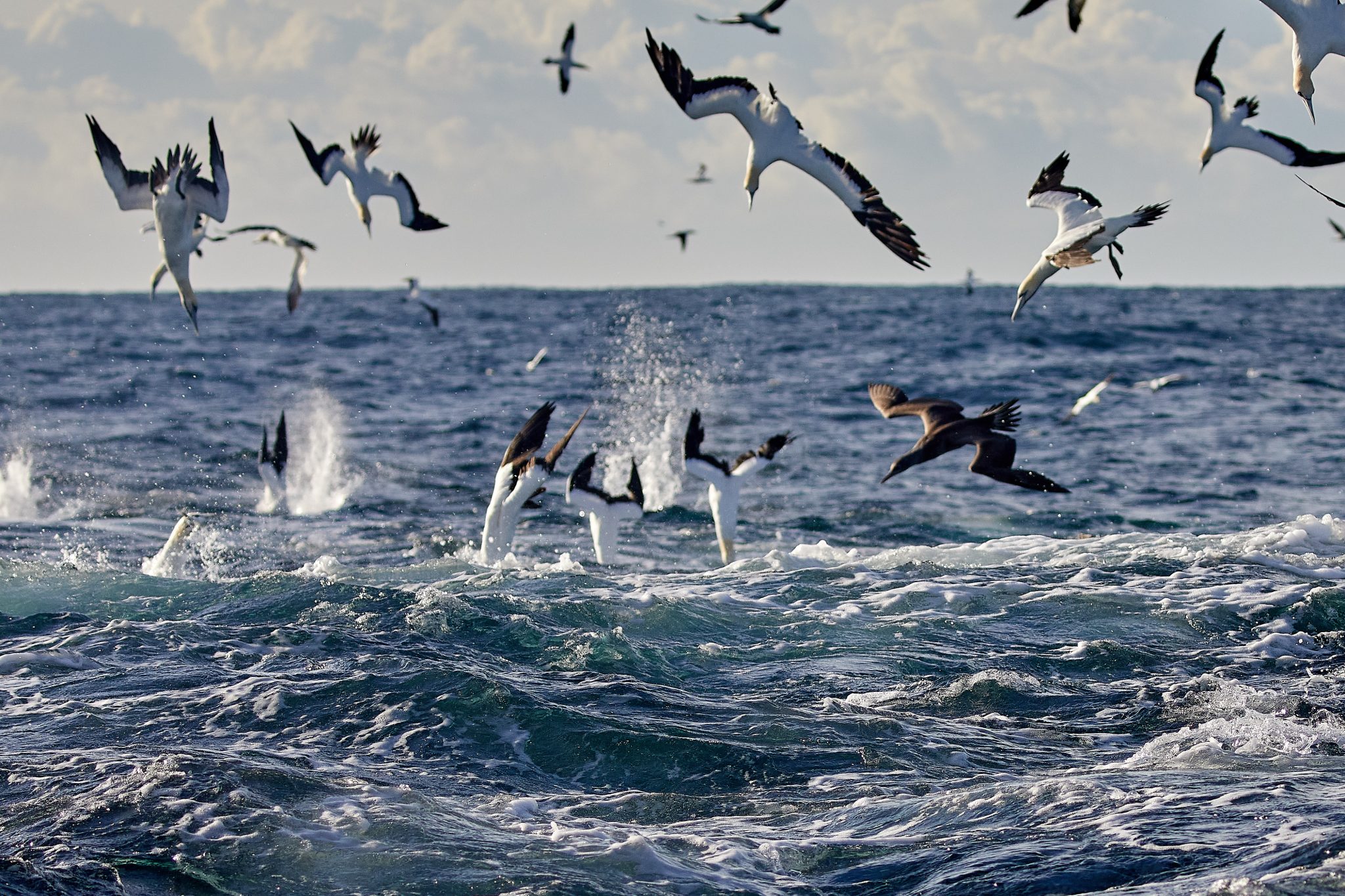
Seas4Life is offering an incredible deal for this year’s Sardine Run. Here are the details:
Date: June 23rd – July 2nd 2024
Type: Family, group, couples, solo travellers. Min of 4 pax – max 8 pax
Location: South Africa
Nights: 9 nights/10 days
Rates originally started at USD$9,705 per person 9 Nights PP, based on 5 pax on the trip. However, you can now experience the Greatest Shoal on Earth followed by some seriously unforgettable shark action for just USD$7,100 per person.
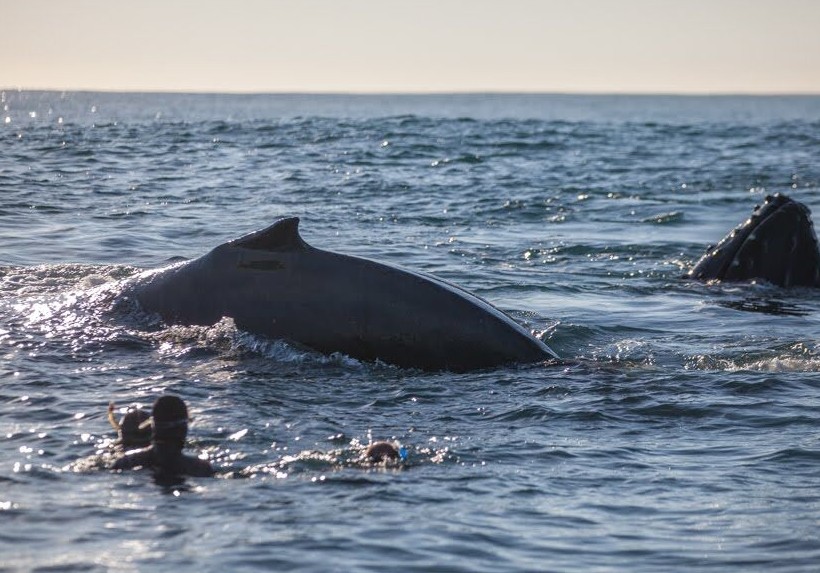
Includes:
- 5 night stay at Gulu Game Reserve (23rd – 28th June)
- 4 night stay at Africa Oceans Manor (28th June– 2nd July)
- 9 nights fully catered stay with breakfast, packed lunch and dinner
- Welcome drinks and selected alcohol (local beers, wines and spirits)
- 4 Sardine Run Days and 3 full Shark Research Days – 1 morning being with Great White
sharks - Guiding by expert marine conservationists, shark specialists and ocean enthusiasts
- Transfers to and from the airports and to and from the launch base and hotels; and on 28th June from Gulu Game Reserve to African Oceans Manor along the Southern African Coastline and parts of the Garden Route
- Privately chartered 26 foot (8m) semi-rigid dive boat (South African Maritime Safety Authority, licensed to travel up to 40 Nautical miles offshore) with two 140hp motors
- Snorkelling and scuba diving gear
- All activities as outlined in the itinerary
- Use of Gulu Private Resort and African Oceans Manor facilities including rejuvenating in their spa, use of the pool, playing tennis, hiking or fishing… (these will be charged separately if used)
- Marine conservation contribution to the shark research unit
- Offsetting your carbon through Planet Moja
- AMREF
- Lead shark scientist Nico, sardine run expertise of ScubaXursions
- Julie as lead guide
- Lots of smiles, laughter and many memories made
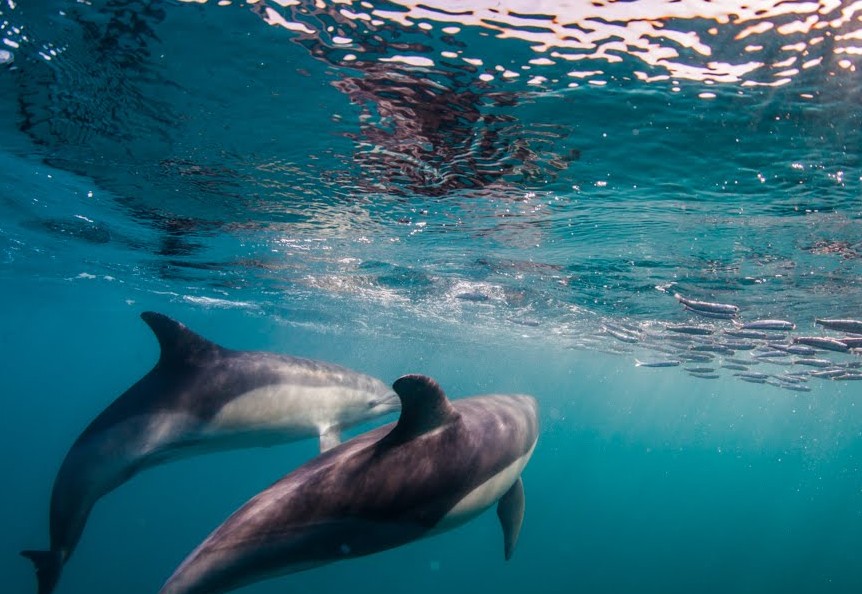
Excludes:
- International flights
- Visas and taxes (airport, government and tourist)
- Scuba diving, free diving and underwater photography courses
- Alcoholic drinks (unless stated) champagne, luxury spirits and selected wines
- Activities not outlined above
- All photographic gear
- DAN Insurance, Scuba and/or photographic gear insurance
- All additional park and/or conservancy fees if applicable
- Travel and health insurance
- Items of a personal nature
- Gratuities
For more information or to book, contact Seas4Life now:
info@seas4life.com / +254 723 639 640 / seas4life.com
-

 Blogs1 month ago
Blogs1 month agoDive Indonesia Part 3: Dive into Lembeh Trip Report
-

 Gear Reviews1 month ago
Gear Reviews1 month agoGEAR REVIEW – Revolutionising Diving Comfort: The Sharkskin T2 Chillproof Suit
-

 News3 months ago
News3 months agoPADI Teams Up with Wellness Brand Neuro to Drive Ocean Change and Create a Blue State of Mind
-

 Blogs3 months ago
Blogs3 months agoMurex Resorts: Passport to Paradise!
-
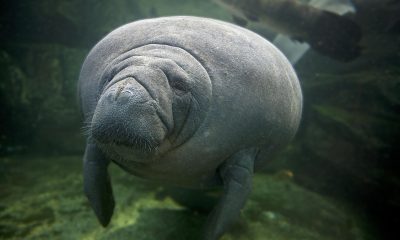
 Blogs2 months ago
Blogs2 months agoSeagrass Awareness Month brings critical food source for Manatees to centre stage
-

 Marine Life & Conservation3 months ago
Marine Life & Conservation3 months agoSave the Manatee Club launches brand new webcams at Silver Springs State Park, Florida
-

 Blogs2 months ago
Blogs2 months agoSOMABAY: Scubaverse interviews Wolfgang Clausen, General Manager, ORCA Dive Clubs
-
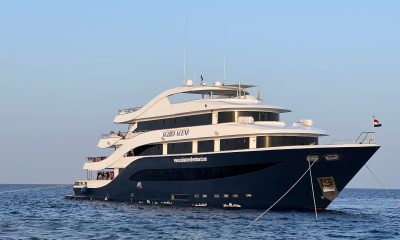
 News3 months ago
News3 months agoDIVE SHOW SPECIAL: Save up to 40% off your next liveaboard with Oyster Diving Holidays









